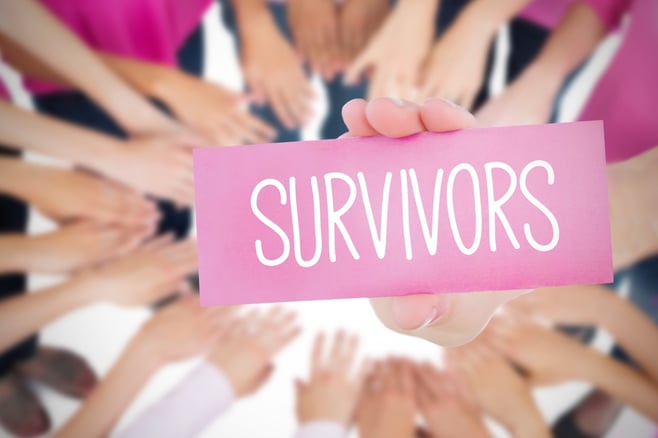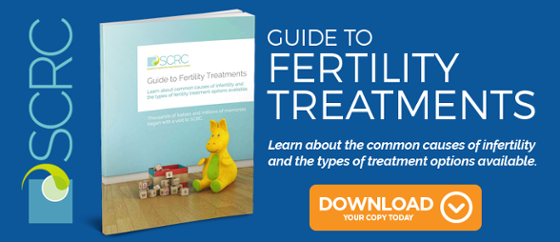
When you are dealing with a cancer diagnosis, planning for the future can be extremely challenging. The shock and stress of getting the diagnosis and undergoing treatment can understandably be all-consuming. For women who want to have a family after undergoing chemotherapy, worry about future fertility is often just another source of pressure at an extremely difficult time.
It is important to know that there is light at the end of the tunnel. Many cancer survivors do successfully go on to get pregnant and have healthy babies after chemotherapy. When you understand your options before and after treatment, you have the opportunity to take back a level of control over your body and your fertility as you go through this journey. There is help and support out there to help you make the right decisions for your health and your future.
How does chemotherapy affect fertility in women after treatment?
If you are hoping to conceive after chemotherapy treatment, you should have a discussion with your doctor about the risks to your fertility posed by the specific medications you will be taking. Because every case is different and several drugs may be used together, calculating your precise level of risk is often impossible. While no one can guarantee how your body will respond to the medication or whether your fertility could be compromised, your doctor should be able to talk you through the known risks and refer you to an expert in post-chemo fertility. Being armed with knowledge is empowering, and can help you make decisions about steps you might take to preserve your fertility.
Some chemo drugs can damage eggs.
Most chemotherapy drugs can cause at least some damage to a woman’s eggs, though the likelihood of damage will depend on which drug is used, the dose, how long the drugs are taken, and the woman’s age and fertility before treatment begins.
According to the American Cancer Society, the chemotherapy drugs most associated with infertility and egg damage are:
- Busulfan
- Carboplatin
- Carmustine (BCNU)
- Chlorambucil
- Cisplatin
- Cyclophosphamide (Cytoxan®)
- Dacarbazine
- Doxorubicin (Adriamycin®)
- Ifosfamide
- Lomustine (CCNU)
- Mechlorethamine
- Melphalan
- Procarbazine
- Temozolomide
Other drugs have a lower risk of egg damage, such as:
- 5-fluorouracil (5-FU)
- Bleomycin
- Cytarabine
- Dactinomycin
- Daunorubicin
- Fludarabine
- Gemcitabine
- Idarubicin
- Methotrexate
- Vinblastine
- Vincristine
After chemo, you have a higher risk of going through premature menopause.
Women undergoing chemo often stop having their periods. They usually return a few months after treatment has finished, but it is important to know that the return of a period does not automatically mean that fertility has returned.
Girls who go through chemotherapy before puberty and women whose period comes back after chemo may be at risk of going through premature ovarian insufficiency, also known as premature menopause, which means that your ovaries stop functioning before the age of 40. This may happen immediately after treatment or some years down the road. Premature menopause does not mean that you will be unable to have a baby: pregnancy may still be possible, using previously frozen eggs or embryos, or using donor eggs.
How long should I wait after chemotherapy before trying to get pregnant?
Exactly how long you should wait before having a baby will depend very much on your individual circumstances, including the type of cancer you had, the type of treatment you went through, and your age. Most doctors recommend waiting at least six months after you finish treatment. While research on this subject is scarce, there is some indication that this time period gives your body time to cycle through any eggs that were damaged by chemo. Damaged eggs can cause genetic problems in babies or result in miscarriage.
Some doctors will recommend a longer waiting period of two to five years. This is less to do with the after-effects of chemo and more to reduce the chances that you could be pregnant if the cancer reappears. Treating cancer during pregnancy is risky for mom and baby, so your doctor may want you to get through the early years after your initial treatment, when recurrence is most likely.
Is there a way to preserve my fertility before I start chemotherapy?
Many women decide to freeze eggs before they go through treatment. The frozen eggs can be used for IVF once you have recovered, which may give you more options if the eggs in your body are affected by the chemotherapy drugs. If you have a partner, you may wish to fertilize the retrieved eggs and freeze the resulting embryos for use after your treatment.
There is no evidence that undergoing fertility preservation treatment before chemo can compromise your chemotherapy treatment outcomes, but delaying treatment in order to pursue fertility preservation options might be a problem. Egg freezing takes approximately two weeks to complete, from the beginning of the stimulation cycle to the egg retrieval procedure. Timing will be important, and your health comes first. The timeline between diagnosis and beginning cancer treatment can be quite short. You will need to talk to your oncologist and a reproductive expert about the amount of time you have before starting chemotherapy and their recommendations for your particular case.
Because this is a choice that may need to be made quickly, fertility preservation may seem like an unexpected financial burden at a time when you can least afford it. Don’t assume that egg freezing isn’t possible for you, though. There are some financial aid options for cancer patients who want to preserve their fertility before treatment.
- The LIVESTRONG Foundation offers free fertility medications and access to discounted fertility services for cancer patients, as well as educational support. SCRC is proud to be named as a LIVESTRONG Fertility program partner. Joining the nearly 450 fertility centers across 48 states that offer discounted fertility services to cancer survivors.
- Team Maggie offers financial assistance and support to teens and young adults who want to preserve their fertility before cancer treatment.
- The Heart Beat Program offers free fertility medications to women with a cancer diagnosis.
There may be other, more local options to help you fund your fertility preservation treatment. Asking a friend or family member to research funding for you can be one way to let them help you as you deal with the doctors and concentrate on getting better. SCRC has joined forces with the Cancer Warrior Foundation to offer hope to women of reproductive age facing a diagnosis of gynecological cancer.
Cancer and chemotherapy are overwhelming experiences, and you deserve support in every aspect of your care, including your reproductive health. This is a time to focus on yourself, and to make your own recovery a priority. If you are concerned about your ability to have a baby after chemotherapy, don’t wait to ask for help. With a good medical team on your side, so much is possible. Contact a Los Angeles fertility specialist today.
Share this on social media:





